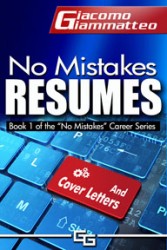Words That People Misuse
Have you ever heard someone say “ain’tâ€, and thought—they should improve their grammar?
Most of us have probably thought that at some point. But perhaps we shouldn’t judge too harshly, because there are many words that are misused on a daily basis. They might not seem as bad as ain’t, but some people think these mistakes are worse.
Let’s take a look at a few:
A Lot or “alotâ€
Of all the words that people misuse, this one shouldn’t be on the list. It’s an easy one. “Alot†is not a word. It is always “a lot†spelled as separate words.
One of the most hilarious posts dealing with this mixup can be found here.
A While or Awhile
This distinction is primarily a usage problem. When used as a noun phrase—a while—it typically follows a preposition.
Example: I think I’ll stay for a while.
When it is used as an adverb, it takes the one-word format and follows verbs, never a preposition.
Example: If it’s all right with you, I’ll stay awhile.
Tip: If the word you’re looking for follows a preposition, such as “after, for, in…†use the two-word format, “a while.†If it follows a verb, use “awhile.â€
Accept and Except
Accept=to receive a gift, to agree, accept an invitation, accept responsibilities, accept a package…
Except=exclusion. (In most cases, you could substitute the word but for except).
Example: I have accepted the fact that everyone is incompetent—except me.
Tip: Try to remember that accept is associated with agree—like if your spouse tells you it was your fault—and you wisely say, “Okay, I accept that.†Agree and accept both begin with A. Except means exclusion, which both begin with E.
Accidently or Accidentally
The misuse of these words is a spelling error. Accidently is not a word, it’s simply how many people mispronounce accidentally.
Adverse and Averse
Aside from the pharmaceutical company ads, where they mention over and over and over again the adverse effects you might experience from taking their drugs, not many people use these words. And that’s why it’s even more important that you get them right. If there’s anything worse than using two-dollar words when they’re not needed it’s using two-dollar words the wrong way.
Example: Adverse is an adjective meaning unfavorable, like the above example of adverse reactions to drugs.
Example: Averse means opposed to. On a resume you might see someone say they are not averse to rolling up their sleeves to do hands-on work.
Tip: Try to remember an adverse reaction to drugs, and that drugs and adverse both contain the letter D.
And in almost every case, averse is followed by the word “toâ€. I can’t think of a case where adverse would be followed by to.
Advice and Advise
Advice is a noun, and normally reflects someone’s opinion or suggestion.
Advise is a verb, and represents the giving of advice.
Example: Bob’s wife advised him to take the job offer, but he ignored her advice and stayed where he was—he regretted it.
Affect and Effect
These words are often confused because both of them function as nouns and verbs.
Affect: As a verb, it means to have an influence on, or to stir or move.
*Example: The company layoffs affected the morale of the employees.
Effect: As a noun, it means the result of something or the consequence of some action. (The effect of the layoff was a drop in morale.)
Effect: As a verb, it means to bring about. The president’s speech effected a change in policy.
Tip: Affect is almost always used in the verb form, so think of action, which also starts with A.
Effect is typically used in the noun form. Think of the end result. (Even though “end result†is redundant.)
All Ready or Already
Already is an adverb. It means prior to, or previously, or so soon. It almost always implies time.
All ready is a phrase that means you are prepared.
*Example: Bob got to the meeting five minutes early, but his boss was already there.
All Right or Alright
Some people still think that “alright†is all right, but the majority of grammarians think that using “alright†is similar to using ain’t.
Many others disagree, and alright is listed in most dictionaries as acceptable. When consulting the AP Stylebook, its advice is—never use alright.
So even though it is becoming more accepted as a standard word, why bother? My suggestion is to use all right.
Among and Between
Among is used for more than two.
Between is used for two.
Remember the movie Highlander, where the immortal men had to fight until death? The tagline of the movie was “there can be only one.†With the word between, there can be only two.
Between is used only for sentences involving two items, and among for sentences involving more than two.
*Example: As he prepared to address the crowd, the politician leaned toward his aide and said, “Between you and me, there is a spy among our group.â€
Tip: Remember the “T†in between stands for two.
Anxious and Eager
I have to admit this is a pet peeve of mine. People use anxious and eager as if they were the same word. It is becoming more acceptable in common usage (which is a damn shame) but there are differences, meaningful differences. “Anxious†stems from the word anxiety. The Merriam-Webster Dictionary defines anxiety as:
- An abnormal and overwhelming sense of apprehension and of fear often marked by such physical symptoms as tension, tremor, sweating, palpitation, and increased pulse rate.
Dictionary.com defines anxious and eager as:
- Anxious—Full of mental distress or uneasiness because of fear of danger or misfortune; greatly worried.
- Eager—Keen or ardent in desire or feeling; impatiently longing.
*Example: I am anxious about meeting my fiancée’s father, but eager to meet her mother.
Tip: Notice that eager is usually coupled with “to†and anxious goes with “aboutâ€.
Any Time and Anytime
Anytime is an adverb.
Any time is most often an adverbial phrase, or an adjective (any) modifying a noun (time).
Example: I like restaurants that serve breakfast at any time of day.
Example: Considering the state of the economy, it’s doubtful I’ll be finding a job anytime soon.
Any One and Anyone
Anyone is a term meaning any person. Any one is the two-word form meaning one specific person.
Example: In this day and age, anyone might be a spy.
Example: Any one of your friends might be a traitor.
Assure, Ensure, and Insure
These words are frequently found on resumes and in all business writing. They demand to be included in any misused words list. Many people use these words interchangeably, and, according to most grammarians, erroneously. They all have the general meaning of making the outcome of a particular circumstance certain; however, there are distinct differences.
Assure is typically used to assure someone/or some living thing, of the outcome.
Example: You might assure your boss that the project will get done on time and under budget. (An assurance is similar to a promise.)
Ensure is used more for things than people. So…to “ensure†the project gets done on time, you hire more people and secure additional resources.
Insure, in its purest form, refers to money or insurance. So…I “Insured†the project for $10 million dollars in case of accidents.
The easiest way to remember the distinction between these words is:
- Assure is used for people.
- Ensure is used for things.
- Insure deals with money/insurance.
Tip: Assure has the word “ass†in it, and you can make an ass of yourself if you give your assurance.
Insure deals with insurance.
The one left over is ensure.
Bottom Line
Misusing any one of these words will not doom you to the seventh circle of hell, but if you are constantly misusing a lot of words someone will notice.
If writing is your business, or even if your business requires you to write, it pays to make sure you are using the right words.
I’ll be doing more of these posts in the future, covering misused words as well as phrases.
If you enjoyed this post, please share.
Giacomo Giammatteo is the author of gritty crime dramas about murder, mystery, and family. And he also writes non-fiction booksincluding the No Mistakes Careers series.
He lives in Texas where he and his wife have an animal sanctuary with 45 loving “friends.â€






















Twitter: procvwriter
says:
I read a large number of CVs on a weekly basis and you have identified some of the top errors I come across. I often wonder if they still teach children these crucial things in school because the mistakes crop up so often here in the UK.
Twitter: natalyanders
says:
When trying to define anything, it’s usually pretty prudent to start with a dictionary definition and then discuss what it means and how ironic situations generally follow the so-called official rules.
Definitions of irony:
– Witty language used to convey insults or scorn; ” he used sarcasm to upset his opponent”; ” irony is wasted on the stupid”
– Language intended to mean the opposite of what is said; covert sarcasm.
– Sarcasm; a mode of speech meaning the opposite of what is said; as, to cry like a baby- that’s a fine way for a man to act, said he with keen irony.
– A mode of speech in which the meaning of the speaker is contrary to his words; a delicate species of sarcasm.
– A kind of satire in which, while the terms are commendatory, the tones are sarcastic; censure sarcastically administered in terms of praise.
– Mode of speech intended to convey a meaning opposite to what is expressed; covert satire.
– A sort of humor, ridicule, or light sarcasm, which adopts a mode of speech the meaning of which is contrary to the literal sense of the words.
An explanation that just barely captures the true feeling and definition of irony. The definitions taken from the dictionary( I use http://www.dictionary.net/), as you can see, are confusing – and that’s not what a definition is supposed to be! The first two explanations from the first set of definitions above, appear to be actually a mixture of sarcasm and tragic irony. The second set of definitions seems to have been added to balance what irony actually is, with what it is most often mistaken for. You see? Not necessarily very helpful.
It’s also not necessarily anyone’s fault that it is difficult to pin down an accurate “cover all” definition of irony – it is instead due to two “problems” regarding the evolution of language:
– Language evolves naturally
– Language evolves through misuse
Regarding the first in the list: irony actually takes on many literary and completely genuine forms. With so many different definitions of irony, it is understandable that a “cover all” definition does not exist, and also that the dictionary’s definition contains so many variations of meaning.